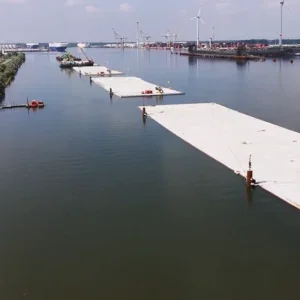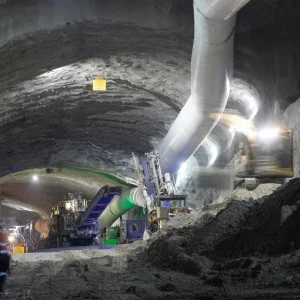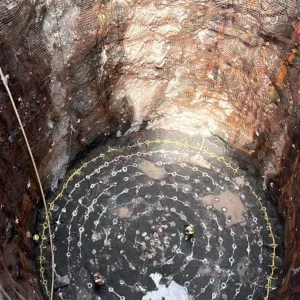The half finished 4.8km long, US$440M Dublin Port tunnel’s height clearence may have to be enlarged by an extra 0.3m as it is too small for some of the super-trucks it is intended to accommodate.
Consultant WS Atkins, called in by Transport Minister Seamus Brennan to find a solution, have suggested the adjustment. But adding the extra height, an embarrassed minister has acknowledged, will cost Irish taxpayers an additional US$33.6M.
The tunnel is intended to ease Dublin’s worsening gridlock by diverting heavy traffic from the city’s streets when it opens in early 2005. Under the contract awarded to a consortium of Nishimatsu Construction, Mowlem and Irishenco, the tunnel is being built with a maximum clearance height of 4.65m. This is claimed to be the current standard in mainland Europe, but it is too low for some of the new super-trucks that bring in goods from Britain, the Republic’s main trading partner.
The minister’s initial response to the controversy was to warn that such trucks would be banned from the Irish capital, on environmental grounds. But that, he was told, could be in breach of EU competition law.
The consultants’ proposed solution, to increase the height by 0.3m, fails to meet the demands of the Dublin Port-based Transport Users’ Group, which has been campaigning for a total clearance of 5.3m. However, according to the consultants, that would cost US$112M and take a year to finish.
Minister Brennan insisted the 0.3m adjustment would not delay the project, and indicated it would soon be given the official go-ahead. “We’re building a tunnel, not just for now but for future generations,” he said. “Ultimately, the question is – do we alter the height now or revisit it in years ahead at enormous cost?”
But the minister has suffered further embarrassment with confirmation that the clearance height for a US$117.8M tunnel planned for Limerick, under the River Shannon, is also 4.65m, the same as in Dublin. He has promised that as this project is not due to start until 2005, the height will be adjusted before, rather than after, the tunnel has been half built.







